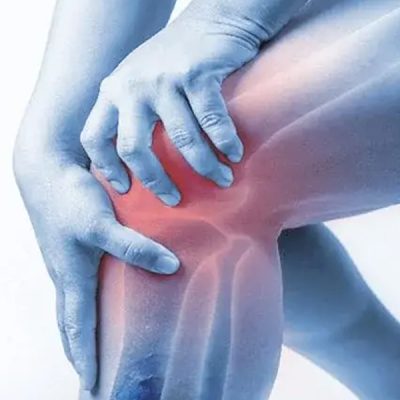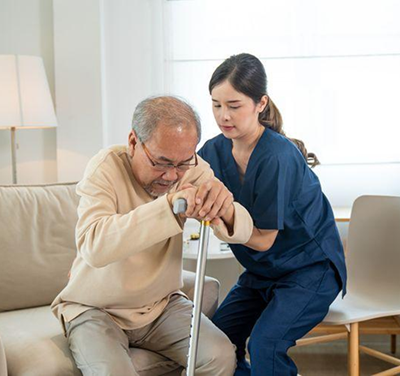Eczema affects many individuals in Singapore, with symptoms like dryness, itching, and recurring flare-ups disrupting daily life. While Western medicine offers topical treatments, many people now seek alternative methods for longer-lasting relief. Traditional Chinese Medicine (TCM) provides a different perspective on eczema, focusing on root causes and systemic balance. TCM eczema treatments in Singapore combine herbal remedies, acupuncture, and lifestyle regulation to manage both symptoms and internal imbalances. Understanding eczema through this lens gives patients more control over their recovery journey.
Viewing Eczema Through the TCM Perspective
Practitioners of Traditional Chinese medicine interpret eczema as an external manifestation of internal disharmony. Skin inflammation, persistent itching, and recurring rashes indicate imbalances in organ systems, particularly the lungs, spleen, and liver. TCM eczema treatments in Singapore address these disruptions by regulating the flow of Qi and restoring organ function.
Practitioners often observe signs of damp-heat, wind-heat, or blood dryness in eczema patients. Damp-heat causes oozing lesions and swelling. Wind-heat triggers acute itching and redness. Blood dryness contributes to chronic eczema with cracked or scaly skin. Each condition demands a tailored approach. Diagnosis relies on tongue coating, pulse readings, and observation of the lesion’s nature and location.
TCM avoids suppressing symptoms. Treatments focus on correcting systemic dysfunction. Practitioners use this diagnostic model to personalise care, ensuring long-term relief through internal balance rather than topical suppression. This system stands apart from standard corticosteroid treatments, which offer temporary relief but risk side effects and rebound flares.
Causes of Eczema in Chinese Medicine
Chinese medicine for eczema explains skin flare-ups as consequences of dietary excess, emotional distress, or environmental exposure. Spicy, greasy, or raw foods generate dampness and internal heat. Over time, this stagnation disturbs the spleen and liver, compromising fluid metabolism and circulation. Emotional patterns such as chronic stress or frustration constrain liver Qi, intensifying heat within the blood and leading to inflammation.
Inadequate rest and overwork deplete the spleen’s ability to transform nutrients. A weakened spleen accumulates dampness, causing fluid retention that manifests on the skin. Excessive exposure to wind, cold, or humidity disturbs Wei Qi, the body’s surface defence, allowing pathogens to invade the skin layer.
TCM eczema treatments in Singapore address root causes rather than suppress symptoms. Practitioners routinely guide patients on diet, lifestyle, and emotional management. Avoiding triggering foods, sleeping early, and reducing screen time support treatment outcomes. Combined with herbal formulas and acupuncture, lifestyle adjustments accelerate healing and prevent recurrence.
Common Treatment Methods for Eczema in TCM
Practitioners rely on herbal medicine as the foundation of eczema management. Formulas clear heat, resolve dampness, and nourish the blood. For example, formulas like Long Dan Xie Gan Tang eliminate liver fire, while Xiao Feng San dispels wind and relieves itching. Each mixture targets the internal landscape causing external inflammation. Herbal decoctions work from within, reducing dependency on external creams.
Acupuncture supports circulation and immune function. Needling specific points calms systemic heat, drains dampness, and boosts spleen and liver function. Many eczema patients report reduced itching and faster lesion recovery after regular sessions. Treatments are adjusted weekly based on progress and symptom evolution.
Other modalities include cupping, moxibustion, and medicated soaks. Cupping clears stagnation in the meridians. Moxibustion warms the body’s yang energy, improving spleen vitality. Herbal washes soothe the skin and accelerate crust removal without steroid use.
TCM eczema treatments in Singapore combine internal and external therapies to control symptoms while promoting internal correction. Practitioners monitor changes and adapt prescriptions, making treatments responsive to recovery progress.
Recovery and Long-Term Management
Recovering from eczema through TCM involves gradual change, not instant reversal. Initial improvements include reduced flare frequency and itch intensity. Full recovery includes smooth skin texture and resilience against external triggers. TCM aims to stabilise the body’s response, rather than provide momentary symptom relief.
Practitioners encourage patients to continue treatment during remission. Maintenance formulas reinforce spleen and liver functions. Dietary guidance continues as patients rebuild internal strength. This phase prevents new flare-ups and ensures the body no longer stores excess dampness or heat.
Relapse often results from premature treatment withdrawal or returning to old habits. TCM emphasises long-term health through conscious lifestyle management. Sleep hygiene, balanced meals, and stress reduction play a pivotal role. Patients who comply with this holistic model often report positive skin health and fewer complications compared to those relying solely on Western medication.
Chinese medicine for eczema offers a comprehensive path by treating both visible lesions and hidden imbalances. While slower than conventional methods, the approach supports deep healing without adverse drug reactions.
Contact Tangs Clinical TCM to explore personalised Chinese medicine for eczema in Singapore. Discover TCM eczema support guided by decades of experience and holistic insight.






